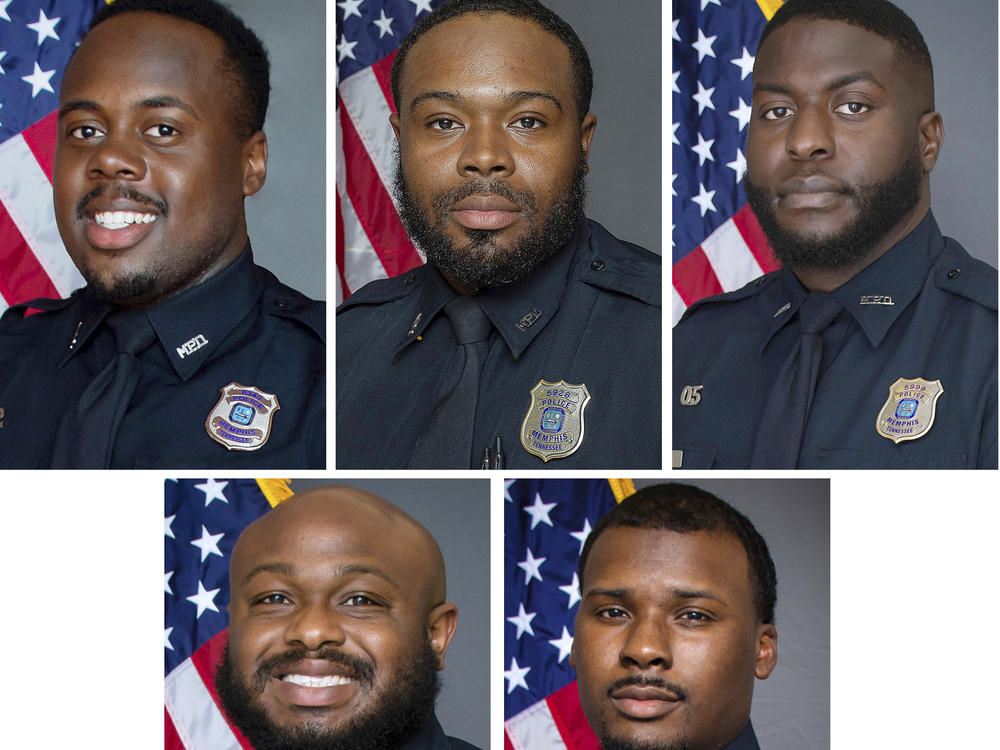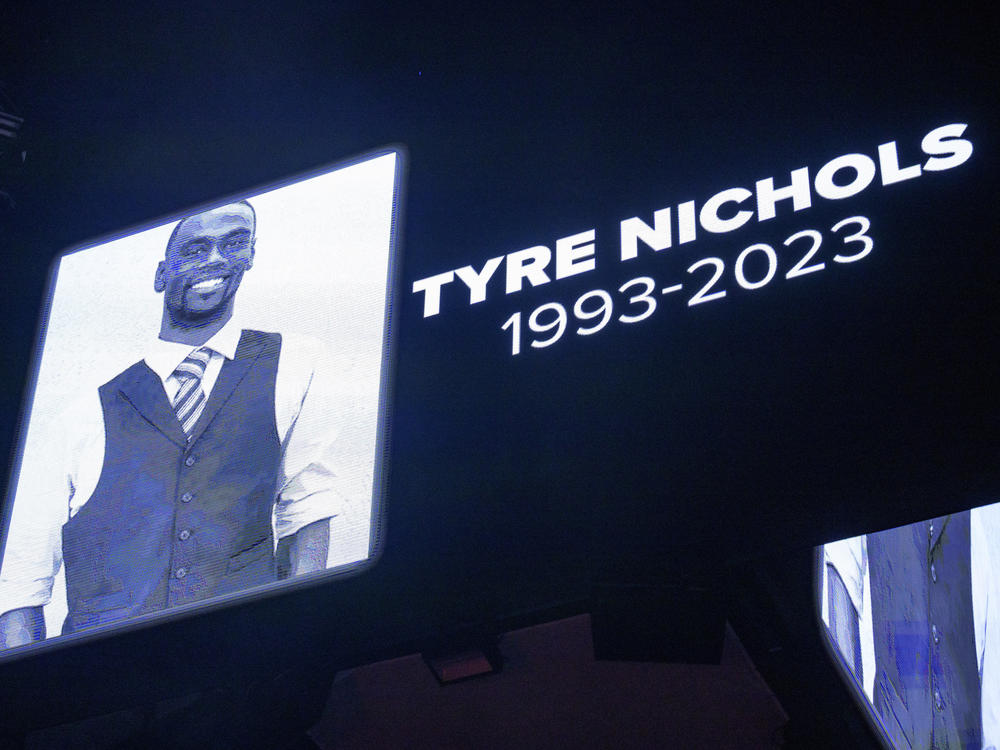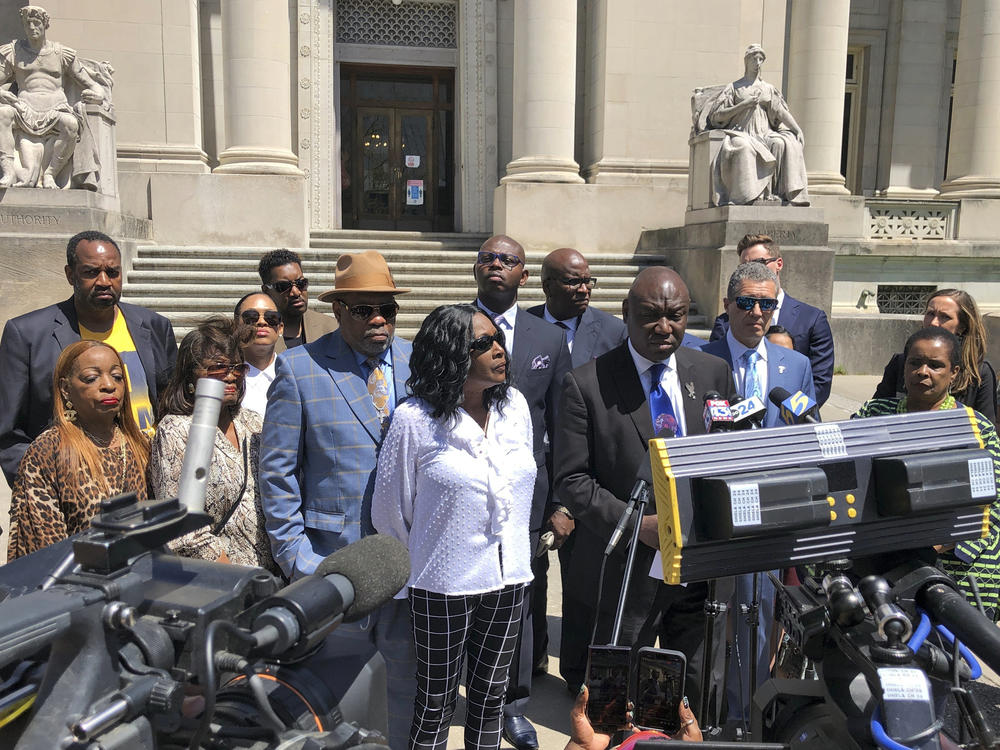Section Branding
Header Content
5 former Memphis officers are indicted on federal charges for death of Tyre Nichols
Primary Content
Updated September 12, 2023 at 4:54 PM ET
Five former Memphis police officers involved in the deadly beating of Tyre Nichols have been indicted by a federal grand jury, according to court documents filed Tuesday.
The five officers — Tadarrius Bean, Demetrius Haley, Emmitt Martin III, Desmond Mills Jr. and Justin Smith — were charged with one count each of excessive force and deliberate indifference, and two counts of witness tampering.
The five men are also facing criminal court charges in Shelby County, Tenn., for second-degree murder, aggravated assault, two counts of aggravated kidnapping, two counts of official misconduct and official oppression. Each of the former officers has pleaded not guilty to the state charges against them.
"It is tragic to see a life cut short at 29, with so many milestones unmet, so many words unsaid, and so much potential unfulfilled," said Assistant Attorney General Kristen Clarke, who leads the Justice Department's Civil Rights Division, at a press conference on Tuesday. "Tyre Nichols should be alive today."
Nichols, a 29-year-old Black man, died on Jan. 10, 2023, three days after he was stopped by Memphis police for what they called reckless driving. According to initial police reports, officers said Nichols fled the scene but eventually was taken into custody after two "confrontations" with officers.
Nichols had complained of shortness of breath following his arrest and was taken to the hospital in critical condition.
The five officers, all of whom are Black, were terminated by the department at the end of January. They each belonged to a team known as the SCORPION unit, which was soon deactivated after Nichols' death.
Effective policing requires the trust of the public, said Clarke.
"We all know that police officers have challenging jobs and that most officers carry out their jobs with honesty, dedication and integrity. But when some officers violate the Constitution, when they use excessive force, when they ignore serious injuries inflicted on people they arrest, their actions erode the public's trust," said Clarke.
Since January 2021, the Justice Department has brought more than 100 prosecutions involving violations of constitutional and legal rights by law enforcement officials, and obtained more than 86 convictions, Clarke said.
In May, official autopsy records obtained by NPR showed that investigators ruled Nichols' manner of death as a homicide.
The autopsy documents detail how Nichols, the father of a 4-year-old son, sustained blunt force injuries to his head, neck, torso and extremities; multiple cortical contusions; and several instances of hemorrhages throughout his body, including to his brain. In addition, it says that he sustained multiple contusions, abrasions and bruising to his body.
Ben Crump and Antonio Romanucci, attorneys representing Nichols' family, told NPR in May that the medical examiner's report was "highly consistent" with their independent autopsy conducted in January.
"The news today from the United States Justice Department that there will be criminal accountability on the federal level for Tyre's death gives his family hope as they continue to grieve his loss and inspire change in his honor," Crump and Romanucci said in a statement to NPR after the federal indictment was filed.
The federal charges follow the launch of a Department of Justice investigation into the City of Memphis and its police department for its use of force, searches and arrests along with potential discriminatory policing.
In July, the DOJ announced the civil inquiry, saying the goal of the pattern or practice investigation was to find out if there were any systemic violations of the Constitution or federal law by the Memphis Police Department.
Memphis Police Chief CJ Davis said her department "will continue to fully cooperate and work closely with the Department of Justice (DOJ) as its members conduct this next phase of their investigation."
Copyright 2023 NPR. To see more, visit https://www.npr.org.



